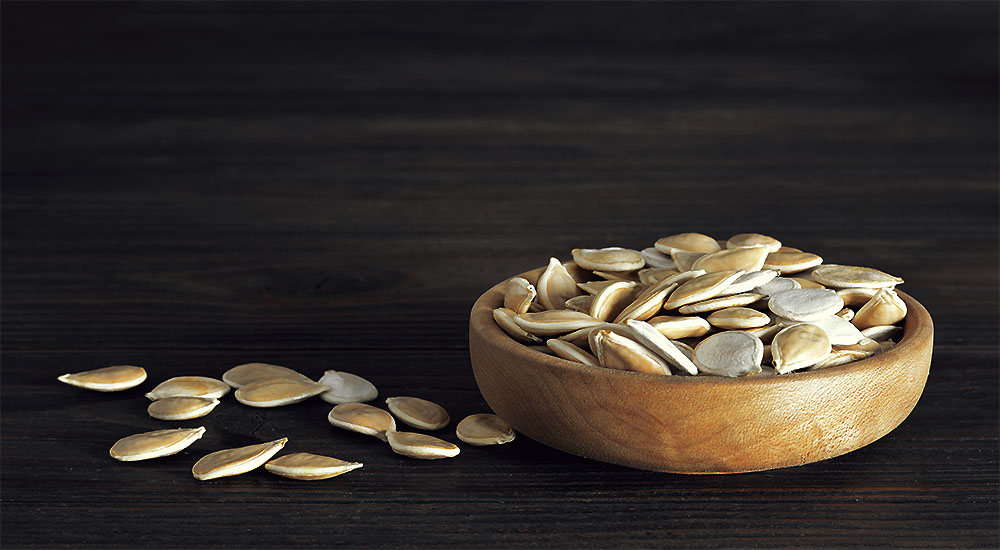Anxiety & Your Diet

Anxiety & Your Diet
(Article from Simply Gluten Free Magazine)
The National Institute of Health states that 31 percent of U.S. adults experience an anxiety disorder at some time in their lives.
What Causes Anxiety?
Mayo Clinic states that the causes of anxiety disorders aren’t fully understood and that “life experiences” appear to trigger anxiety. It also states that anxiety may be linked to an underlying health issue, which goes hand-in-hand with my practice of root cause medicine. Anxiety disorders may also be side effects from medications a person may be taking for other health issues.
Prescription Drugs
If you’ve suffered for a while you’ve likely taken, or at least been prescribed, an anti-anxiety medication. The medications most often prescribed for anxiety are SSRIs such as Prozac, Zoloft, Paxil, Lexapro, and Celexa. SSRIs have been used to treat generalized anxiety disorder. They are among the world’s most widely prescribed medications, with 16.7 percent of U.S. adults and 6 percent of U.S. adolescents (ages 12-19) taking some type of prescription mental health drug.
Side effects of SSRIs can include nausea, vomiting, diarrhea, headaches, dry mouth, drowsiness, dizziness, restlessness and agitation, insomnia, sexual problems, and changes in appetite. Some studies have shown that certain SSRIs can increase violent tendencies, aggression, or mania. Children, teenagers, and young adults under 25 years old may have an increase in suicidal thoughts or behavior when taking SSRIs, especially in the first few weeks after starting or when the dose is changed.
If you’re on these medications and experiencing side effects that are interfering with your life if you’re looking for natural options to use in conjunction with your medication, or if you’re looking to try something natural before trying medications in the first place, here’s some information that may be able to help. Of course, be sure to discuss your plans with your doctor first, and if you’re already on medication, do not stop taking your medication abruptly – you typically must wean off this medication slowly and with the help of a physician, or you may encounter worsening symptoms.
The Gut-Brain Connection
Your brain and body, including the gut, are connected. The food you eat can affect your mood, including feelings of anxiety.
Your microbiome, the estimated 39 trillion good bacteria housed in your gut, is known to contribute not only to the health of your gut, but your immune system and brain health.
The microbiome can turn on good genes while suppressing bad ones.
These organisms send signals to your brain via nerves and hormones, directing brain function. They also dictate immune health, creating a healthy or inflammatory state, depending on their balance or imbalance, (the imbalance is also known as dysbiosis).
A 2013 study discussed this “brain-gut” axis, concluding that an imbalanced microbiome has been linked to a variety of psychological issues, including depression and anxiety.
Foods That Can Alter Your Mood
Sugar
Sugar and starch (that turns into sugar) increase cortisol and adrenaline, your stress hormones. That’s why if you’re feeling anxious or stressed, the worst thing you can do is eat foods that create a stress response in your body. It will magnify the stress and anxiety you already feel. And it suppresses your immune system.
Sugar is a common food sensitivity, too. Other than the taste, there’s nothing good to be said about sugar. Not only does it stimulate stress hormones, but it is also the preferred fuel source of viruses, bacteria, and cancer cells. These are not the bad guys you want to feed.
Gluten and Dairy
I’m grouping these together because they both are associated with “the opioid effect.”
- Gluteomorphin is the opioid-like substance created by the protein in gluten.
- Casomorphin is the opioid-like substance created by the protein in dairy.
These foods can influence your emotional state because those opioid-like substances attach to the opioid receptors in the brain, producing a “feel-good” effect that can create an addiction to those foods.
Here’s a quick test: Is there a food that comes to mind that if you were asked to give up, you’d have a strong emotional response such as anxiety or anger? If so, does the food contain gluten or dairy, or sugar? These are the 3 most addictive foods, but it is gluten and dairy that have the opioid association.
Imagine you’re trying to lose weight or “clean up your diet” and have eliminated gluten and dairy. If you have an opioid response to either or both these foods, you can find yourself in a nightmare of withdrawal symptoms.
Without your “food fix,” you may feel irritable, anxious, depressed, and/or angry. These reactions can be quite intense, sabotaging your ability to maintain your healthy dietary changes. Plus, since it’s not expected that a change in diet can affect your mood, you may find yourself seeking out medical help, which typically results in a drug prescription.
And then there is the issue of having an actual food sensitivity to dairy or gluten. Both of these are common food sensitivities. While symptoms most commonly associated with these foods are dietary in nature, research has come to prove the psychological and mood ramifications for certain individuals.
I well recall in my early days of gluten sensitivity exploration hearing from patients whose anxiety and depression “evaporated” upon eliminating gluten from their diet. They asked if there was any proof of this. They wondered if it was psychosomatic. In those days, 25 years ago, we didn’t have the research validation as we do now, but I certainly had the clinical experience to let them know they were not alone in their experience. In fact, psychological changes were quite common with gluten sensitivity.
Your immune system is highly intelligent. When a food protein to which it has a negative reaction continues to enter the body through your diet, your immune system produces antibodies to destroy this foreign invader. Antibodies that your immune system makes against the toxic proteins found in gluten and dairy can cause neurological inflammation. Nerves can be “turned on” and left in an excitatory or overstimulated state as a result of these foods, due to the chronic inflammation they can cause.
Interestingly, it has long been known that gluten sensitivity, as opposed to celiac disease, tends to manifest more psychological and neurological symptoms.
Conditions such as anxiety, depression, schizophrenia, ADHD, seizures, and migraines, have a much higher association with gluten sensitivity. There are likely a variety of reasons, but the association is indisputable at this point. Gluten can impact your brain.
Getting to the Root
The good news is that if your mental health symptoms are in fact caused by your diet, you may not require psychiatric drugs or years of therapy.
However, anxiety can be multi-factorial, meaning there can be several contributing factors which, at the same time, are resulting in the condition.
I often meet patients who have tried a gluten-free diet for a few weeks and noticed no difference. Yet, when we test them, they are indeed gluten sensitive. So, when combined with addressing other factors, they then enjoy great results.
There are the lucky individuals who go gluten-free for a mere 10 days and a “miracle” occurs – all their anxiety is gone.
While we all wish we were the latter case, it doesn’t mean it’s difficult to get to the root of your anxiety.
Aside from addressing gut dysbiosis, cleaning up the diet, and addressing food sensitivities, sex hormones and stress hormones may also need to be looked at as contributing factors. Beyond some lifestyle changes of getting eight hours of sleep, exercising 40 minutes per day as many days of the week as possible, and maintaining a nutrient-rich diet, you may need professional help to precisely rebalance these hormones naturally. I wouldn’t recommend any synthetic hormones, as they tend to create further imbalance and offset gut health.
To summarize, anxiety is extremely common and it can be very debilitating. Drug therapy can be dangerous or have unwanted side effects, and it may not get to the root of what is causing your anxiety in the first place. A little bit of functional medicine can help you to determine what might be causing it and perhaps some natural methods might be the way for you to go, leaving drugs as a very last resort once you’ve tried everything else.
There is hope.
Do you need help with your health?
We have the diagnostic and testing tools, the clinical experience, and a different medical approach to discovering the root cause of why you have the symptoms that are bothering you. As long as you are ready to make some dietary and lifestyle changes, we can help you. We will "hold your hand" through the changes, step by step, to make each step an easy one. We are located in Clearwater, FL, at 1000 S Ft Harrison, at the corner of Ft. Harrison Ave. and Magnolia St. There is plenty of parking space directly accessible from Ft Harrison. If it is not convenient for you to come to Root Cause Medical Clinic, we offer telehealth/telemedicine consultations to residents of certain states. Call us for details.
Contact us for a Consultation – Call 727-335-0400

Dr. Vikki Petersen DC. CCN
Founder of Root Cause Medical Clinic
Certified Functional Medicine Practitioner
Dr Vikki Petersen is a public speaker, author of two books, several eBooks and creates cutting edge content for her YouTube community. Dr Vikki is committed to bringing Root Cause Medicine and its unique approach to restoring health naturally to the world.
Ask a Doctor
Have a health concern you'd like to speak with a doctor about? Or just want clarity on a subject? Ask Us!
Featured Articles
Popular Stories
References:
Voices from within: gut microbes and the CNS. Cellular and molecular life sciences. 2013. 70(1), 55-69. Forsythe, P., Kunze, W.A.
Gut-brain axis: how the microbiome influences anxiety and depression. Trends in neurosciences. 2013. 36(5), 305-312. Foster, J.A., Neufeld, K.A.M.
Neurologic and psychiatric manifestations of celiac disease and gluten sensitivity. Psychiatric Quarterly. 2012. 83(1), 91-102. Jackson, J.R., Eaton, W.W., et al.
Psychotropic medication use among adolescents: the United States, 2005-2010. CDC’s National Center for Health Statistics Data Brief No. 135. December 2013. Jonas, B., Gu, Q., Albertorio-Diaz, J.
Adult utilization of psychiatric drugs and differences by sex, age, and race. JAMA Internal Medicine. 2017. 177(2):274-275. Moore, T., Mattison, D.
As always, consult a medical professional before beginning any new protocol.

